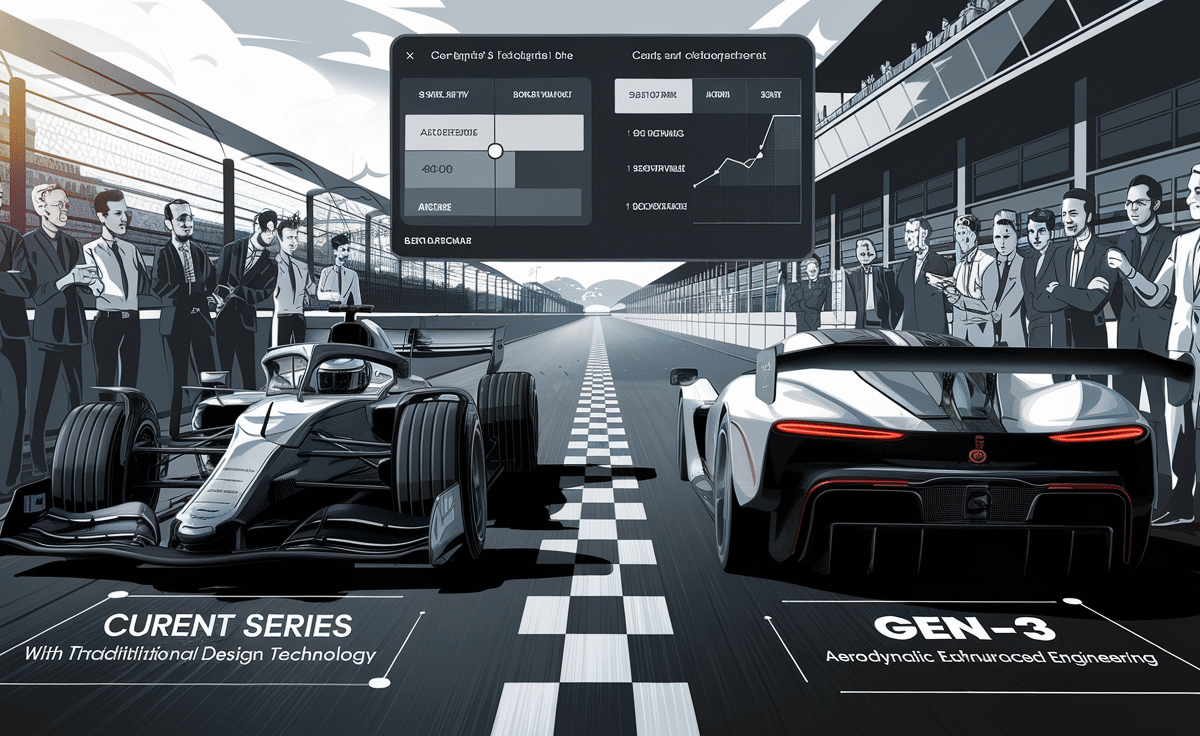The ongoing debate surrounding the transition of Super2 to the Gen3 platform is heating up, with significant implications for teams and drivers alike.
Testing Insights
[IMAGE0CONTEXT:ktmunknown] Triple Eight Gen3 and Gen2 cars share the track during testing. Image: Richard Gresham / Speedcafe. As discussions unfold, the question arises: should Super2 adopt the newer platform in 2027 or 2028? This decision is crucial, as Supercars risks alienating standalone Super2 teams if the transition is mishandled. A recent meeting of team representatives ahead of the Ipswich Super440 highlighted a clear divide between main game squads and Super2-only outfits.
Team Perspectives
Triple Eight and Brad Jones Racing, which operate multi-car teams across both Supercars tiers, expressed a strong preference for Super2 to make the leap in 2027. Their argument is supported by a desire to transition their current machinery down to Super2. Both teams are switching manufacturers in the main game next year, resulting in surplus cars and parts that could be utilized in Super2.
Standalone Squad Concerns
However, the standalone Super2 squads argue for the opportunity to extract an additional year from their existing Gen2 ZB Commodores and Ford Mustangs, which were only introduced in 2023. The costs associated with the changeover are substantial; new Gen3 cars are estimated to be around $750,000, not including expenses for engines and other components. Running costs emerged as a significant topic during the Ipswich meeting, especially for the standalone Super2 teams that have yet to run Gen3 cars. While Gen3 engines promise savings in upfront and rebuild costs, other factors, such as pricier bodywork, are believed to negate these benefits.
Arguments for Delaying Transition
One of the strongest arguments for postponing the transition until 2028 is to allow Supercars an additional year to address various costly aspects of the Gen3 cars before Super2 teams commit to investment. This includes resolving issues with the controversial wheels that interlock upon contact, as well as other maintenance concerns and unnecessary technical complexities.
Availability of Gen3 Cars
Questions have also been raised about whether there will be enough Gen3 cars available by 2027. [IMAGE1CONTEXT:bmwunknown] Super2 drivers compete at QR. Image: InSyde Media. Interestingly, the number of Gen3 cars built to date is roughly equivalent to the number of Car of the Future vehicles at the time they were integrated into Super2 in 2016. However, that transition allowed for a mix of new and old machinery on the Super2 grid. The upcoming Gen3 change is expected to be a complete overhaul for the entire field, as the superior speed of Gen2 cars would pose challenges if they were run as a subclass.
Impact on Young Drivers
Another critical consideration is the best interest of the young drivers that Super2 aims to nurture on their path to the Supercars Championship. The significant differences in grip levels between Gen2 and Gen3 vehicles have rendered Super2 less relevant to the main game. Furthermore, the performance disparity among Gen2 cars, stemming from a more open ruleset, undermines Super2’s philosophy of showcasing talent.
Next Steps
The Gen3 Super2 debate is set to move to the Supercars Commission, which includes representatives from all main game teams, before the Board makes a final decision. Clarity on Super2’s future is essential for teams to plan effectively. This week’s Pirtek Poll seeks input on whether Supercars should delay the introduction of Gen3 to Super2 until 2028 or proceed with the 2027 timeline.


